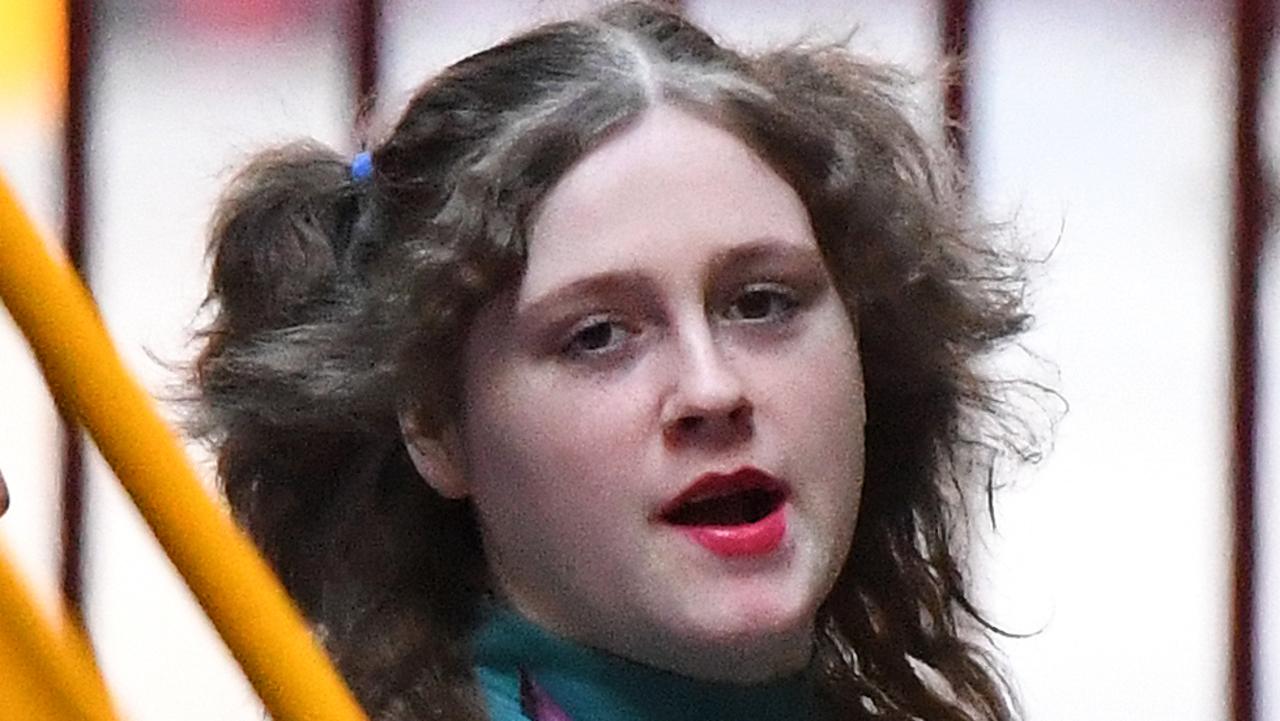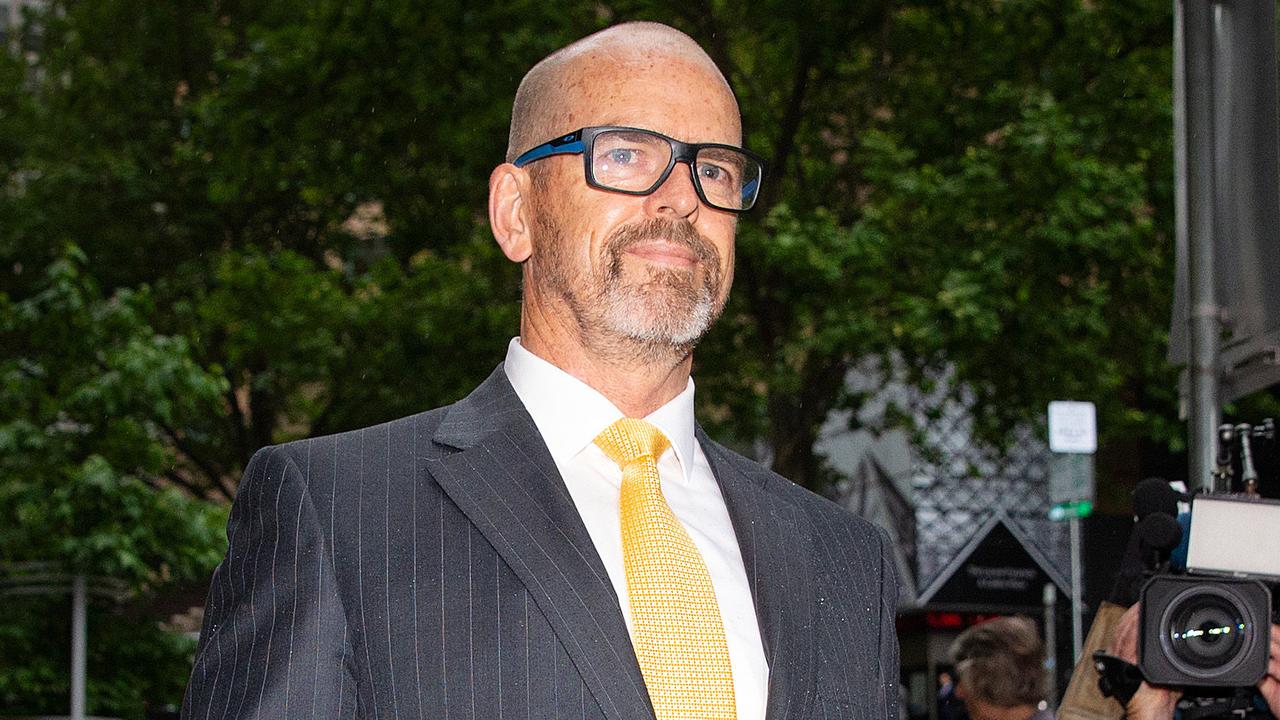Great Train Robbery fugitive Ronnie Biggs hid in Melbourne with his family
RONNIE Biggs was a world away from London but the law almost caught up with him in Melbourne in 1969, before the Great Train Robber fled to Brazil.
True Crime Scene
Don't miss out on the headlines from True Crime Scene. Followed categories will be added to My News.
HE was infamous for his role in the Great Train Robbery, but before he made it to Brazil, Ronnie Biggs tried to live the quiet life of a chippie and ordinary family man in Melbourne.
Legend has it that Biggs, a member of a construction crew at GTV 9 under the assumed name of Terrence Cook, helped build a dressing room for the reigning king of television, Graham Kennedy.

But the serenity of his family’s home in the eastern suburbs was shattered in October 1969 as police closed in on the fugitive.
Ronald Arthur Biggs was one of a gang of 12 men who robbed a Glasgow-to-London Royal Mail train in the early hours of August 8, 1963, escaping with a fortune even by today’s standards.
It was Biggs’ 34th birthday.
The gang switched its signals and tricked the driver into stopping.
They raided the train of 125 sacks of banknotes worth 2.6 million pounds.



Train driver Jack Mills was struck on the head with an iron bar during the daring robbery.
He never fully recovered from his injuries, and died following a battle with leukaemia in 1970.
Three men were never caught for their part in the robbery.
But most of the gang, including Biggs, received hefty sentences for the crime.
Biggs was arrested just weeks after the robbery.
A fingerprint on a sauce bottle at the gang’s hide-out tied him to the crime.

He was jailed 30 years, but escaped Wandsworth prison in London in July 1965, scaling a wall with a rope ladder thrown to him by a masked man and fleeing in a waiting furniture van.
Biggs spent a short time living in Paris, then Sydney before shifting to Adelaide.
His wife Chamian Brent and their sons Nicholas, Chris and Farley joined him in the city of churches.
But, following an anonymous tip that police were onto him, Biggs and his family moved to Melbourne in May 1967.

They settled as the Cook family and may have spent some time in a home in Strathmore before moving into a brick veneer house in Hibiscus Road, Blackburn North.
Tony Robinson, who later became the Labor MP for the area, was a boy when the Cooks became neighbours in Hibiscus Road.
Mr Robinson said Hibiscus Road was a perfect hide-out for the family.
“Among young families like their own the family, under their assumed name of Cook, fitted in easily,’’ he told the Herald Sun in 2013, following Biggs’ death.
“Two of their children attended nearby Blackburn Primary School and Biggs’ wife Charmian worked at the Bowater Scott factory in Box Hill South.’’

Biggs had joined Britain’s Royal Air Force in 1947 but was dishonourably discharged for desertion two years later following a pharmacy burglary.
The petty criminal did time following a car theft and, in 1955, a failed robbery, and met co-train robber Bruce Reynolds while in Wandsworth prison.
He trained as a carpenter in an attempt to go straight, and married Charmian in 1960.
He was working on renovations to a retiring train driver’s house when the driver, who was never identified, revealed the robbery plot to Biggs — and Biggs was in.

In 1997, Charmian Brent told the Herald Sun that much of what was left of her ex-husband’s share from the robbery — 147,000 pounds — was spent by the time the family reached Melbourne.
“The vast majority of Ron’s share of the robbery went in getting him out of prison, out of England, having the plastic surgery and getting him to Australia — 80,000 or so,” she said.
“I believed in him so much, and believed the sentence he got was so out of order, and he was determined to escape. I wanted to be with him. I loved him to death.”
Asked what life might have offered them without the robbery, Ms Brent said: “I think he would have succeeded in business.
“We didn’t have any capital or anything. But he’s got skills which he still uses now. He’s a people person.”

It’s not clear how Biggs was prompted to flee Melbourne in October 1969, but one story suggests legendary crime reporter Jack Darmody.
He told the Daily Telegraph that in October 1969, he got the tip that Scotland Yard was coming for Biggs, now working as a carpenter on the Tullamarine airport project.
Darmody said he was drinking in the Police Club at D24 in Russell Street in the wee hours and overheard two detectives talking about Scotland Yard’s plan to nab a Great Train Robber in Melbourne.
He then went straight to the press room, phoned Scotland Yard and spoke to Detective Inspector Jack Slipper, who was heading up the hunt for Biggs.
Introducing himself as Darmody of Russell Street headquarters in Melbourne, he asked for details about the detectives coming for “that bloke”.

Darmody said Slipper, thinking he was speaking to a detective in Melbourne, told him everything.
Darmody then filed for the short-lived afternoon daily, Newsday.
“Technically it wasn’t a lie,’’ he told the Daily Telegraph years later.
“I was calling from police headquarters, and I never said I was a copper.’’
Colleagues, though, aren’t so sure.
Ken Hooper, a mate who was working for The Age at the time, said there’s no doubt Biggs escaped thanks to Darmody’s story, but his version of events differs.

“Jack never drank in the Police Club — that part of the story was probably to cover for the fact he got the tip from a homicide cop and didn’t want anyone to know,” Hooper told the Daily Telegraph in 2013.
He said Darmody that morning headed out to Tullamarine and asked a supervisor for Terry Cook but Biggs, sensing danger, downed tools and fled 30 minutes ahead of the police.
Mr Robinson remembers police cars screaming to a halt in Hibiscus Road as the family was settling in to watch the classic TV drama Homicide about 8pm on October 17, 1969.
Biggs was long gone. Ms Brent and their sons were held but later released.
He hid out with friends and, using a friend’s passport, boarded a passenger ship in Melbourne in February 1970 that took him to Panama.
Biggs arrived in Rio de Janeiro in May 1970.

Life was tough for Ms Brent after Biggs legged it.
Now on her own within three boys to raise, she worked day and night to keep a roof over their heads.
Their eldest boy, Nicholas, was killed in a car accident the following year.
The couple’s divorce proceedings began in 1974 but the couple and their remaining boys caught up regularly in Brazil and appeared very close.
That same year a newspaper and then Scotland Yard traced Biggs to Brazil, and Slipper arrested him in February.

Biggs spent a few weeks in custody in Brazil but Slipper returned to the UK empty-handed.
Biggs had a fourth son, Michael, with his Brazilian lover Raimunda de Castro, who he married in 2002.
With no extradition treaty between Britain and Brazil, Biggs remained in Rio de Janeiro for more than 30 years.
He fought off extradition bids, moves to deport him and two attempted kidnappings, earning a living from his notoriety because his criminal past did not allow him to work in Brazil.

For a fee, he would open his home to tourists and journalists and tell them tales about his criminal past and his life on the run.
He sold T-shirts and merchandise related to the train robbery, gave interviews and recorded music with punk pioneers The Sex Pistols to make ends meet.
Biggs returned voluntarily to England in 2001 on a private jet paid for by London’s The Sun newspaper.
He had been ravaged by strokes and other health issues, and was arrested on arrival in London.

A frail Biggs was released from prison on August 7, 2009 — the day before his 80th birthday.
In an interview with the Herald Sun in London in 2009, Michael Biggs said his father always fond of Australia.
“He has a lot of love for Australia,’’ Michael said.
“All through his life, he always mentioned that he’d like to see Australia again.
“He’s got a very serious soft spot in his heart for the four years he spent there and the friends he made there.
“I know that if he was fit to go somewhere he would like to visit before he died, but unfortunately we can’t see that happening.’’

Biggs, 84, died in London on December 18, 2013.
Charmian, who remained in Melbourne’s east, died on December 11, 2014, aged 75.


